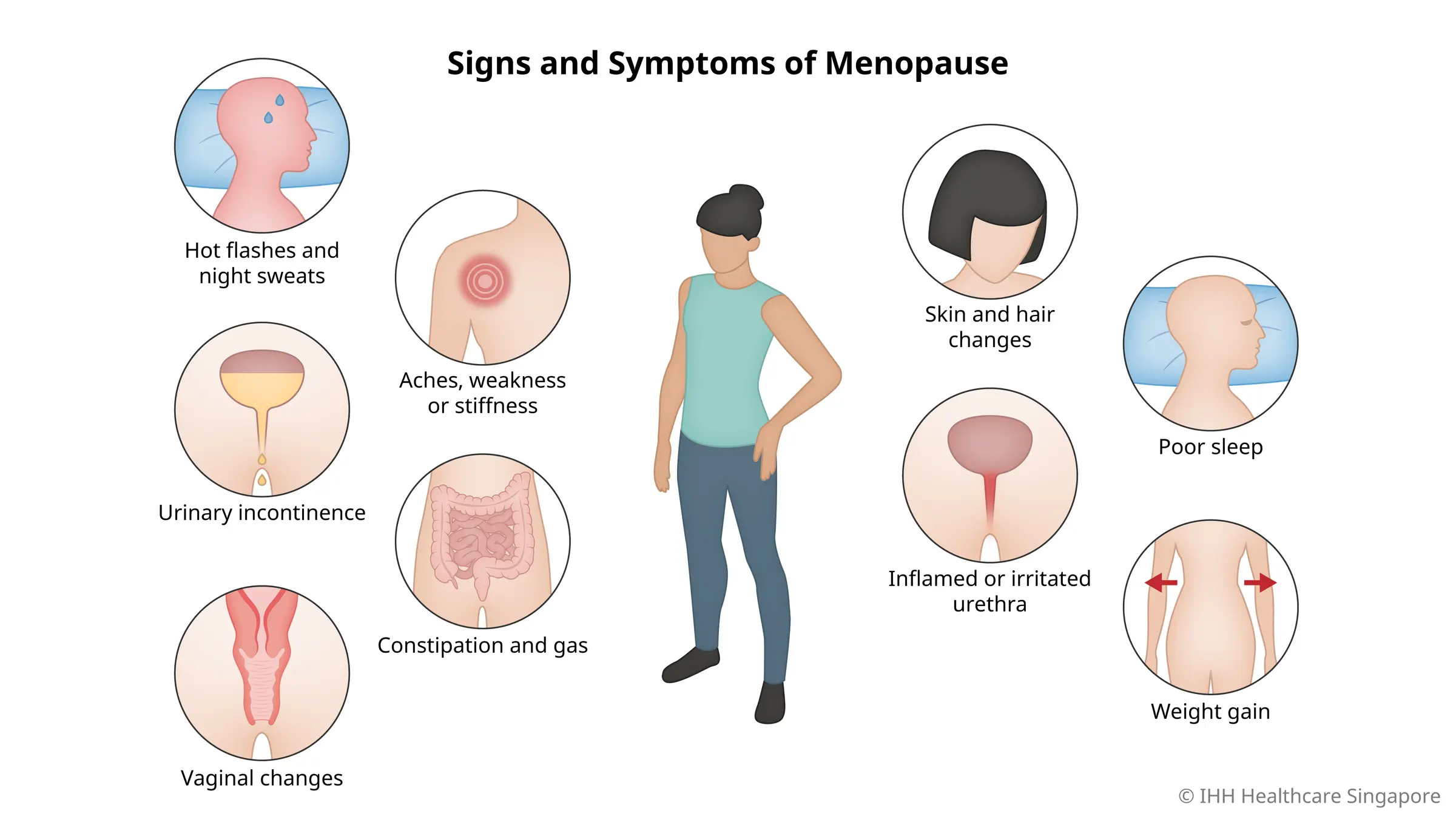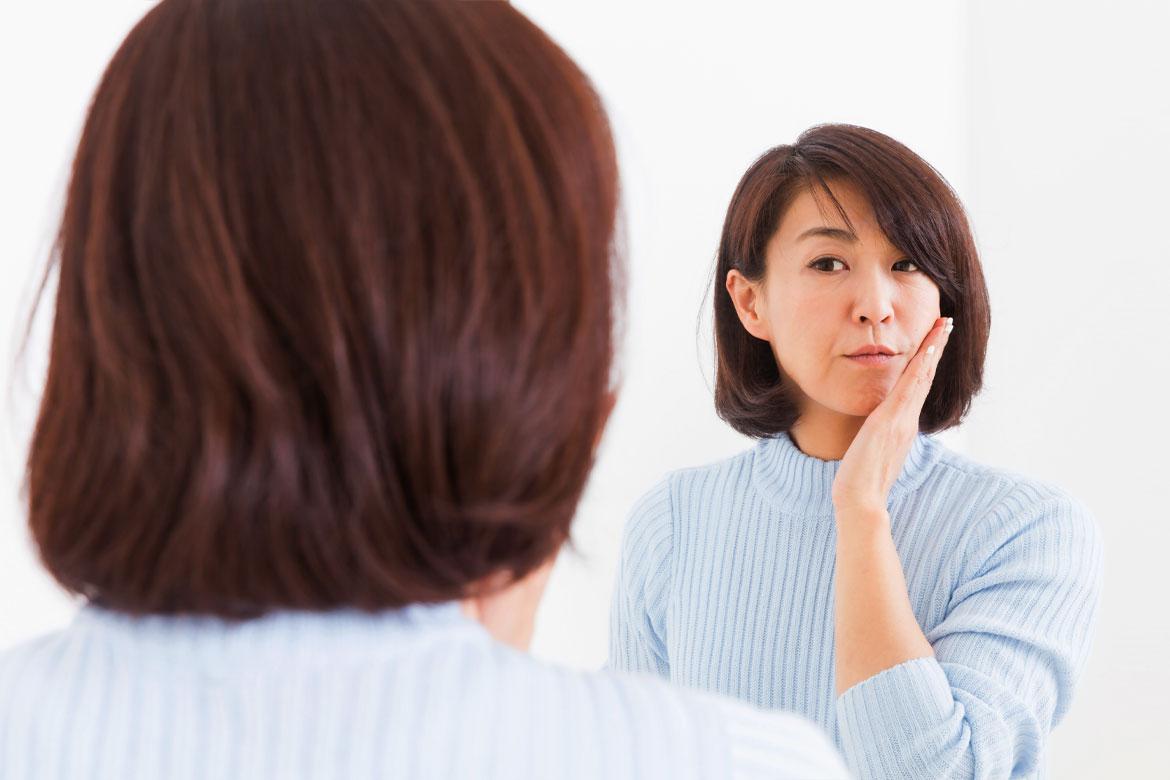-
-
Featured Care Areas

Menopause
What is menopause?
Menopause is not an illness, but the natural end of female fertility. As women age, the production of the sex hormones oestrogen and progesterone in the ovaries slows down, and the ovaries stop producing eggs.
Menopause begins when a woman stops having her menstrual period for 12 consecutive months. It is a process that naturally happens between the ages of 45 – 55 years, although it can occur as early as in the 30s, and as late as in the 60s.
Stages of menopause
Women will undergo 3 stages of the menopause process:
- Perimenopause or menopause transition
- Menopause
- Postmenopause
Perimenopause
Eight to 10 years prior to menopause, women in their 40s begin to experience perimenopause when their ovaries begin to produce less oestrogen. The decrease in oestrogen speeds up during the last 2 years of perimenopause. At this point, many women will start to experience menopause symptoms. However, they continue to have menstrual cycles and can still get pregnant.
Menopause
When a woman no longer has menstrual periods for 12 consecutive months, she enters the menopause stage. At this stage, women experience signs of menopause such as:
- Hot flashes
- Vaginal changes
- Sleeping difficulties
- Dry skin
Postmenopause
During this stage, menopausal symptoms begin to ease for most women. However, some may continue to experience symptoms of menopause for more than a decade. Due to a lower level of oestrogen, women at this stage are prone to health conditions such as heart disease and osteoporosis.
What are the signs and symptoms of menopause?
Every woman experiences menopause differently. You may find life more overwhelming than normal, and may not understand why. Your mood might change often, from sadness and a feeling of low self-esteem to irritability and frustration.
Other symptoms of menopause are:
- Aches, weakness or stiffness caused by reduced oestrogen levels, stress or tension, and a lack of exercise
- Constipation and gas, as reduced oestrogen levels cause your digestive tract to slow down
- Urinary incontinence, when coughing, laughing, exercising or carrying heavy things may cause urine to leak
- Hot flashes and night sweats from hormonal changes, which usually occur at night, may interrupt your sleep:
- Red blotches on your chest, back, and arms, sometimes with sweating, rapid heartbeat, nausea and dizziness
- Sudden intense heat all over your body, particularly in the upper part such as the face and neck
- Poor sleep usually caused by night sweats, but can also be a symptom of anxiety or depression
- Skin and hair changes as your skin becomes thinner and drier with more bruising and itching while hair growth slows down and your hair becomes less manageable
- Vaginal changes:
- Sexual intercourse may become uncomfortable or painful
- The skin around the vaginal opening becomes dry and thin, causing discomfort or itching
- The vagina becomes more vulnerable to infection
- The vaginal lining becomes drier, thinner and less elastic
- Weight gain around your waist as your body begins to use calories more slowly
- Inflamed or irritated urethra – the tube that carries urine from the bladder – causing frequent urination, a feeling of wanting to urinate urgently or pain during urination
What causes menopause?
Menopause is a natural process in women that occurs between the ages of 45 – 55 years. However, it can occur as early as in the 30s and as late as in the 60s.
What are the associated risks of menopause?
Menopause may lead to a higher risk for heart disease, bone loss and fractures. It is important to understand these risks so that the necessary steps can be taken to reduce them. In most women, the hormone levels will eventually stabilise and the symptoms will decrease.
Talk to your doctor to discuss menopause treatment options and lifestyle recommendations to help manage menopause and its symptoms.
This page has been reviewed by our medical content reviewers.
Need help?
For enquiries, please call
+65 6575 7575
For appointment bookings, please WhatsApp
+65 8111 9777







